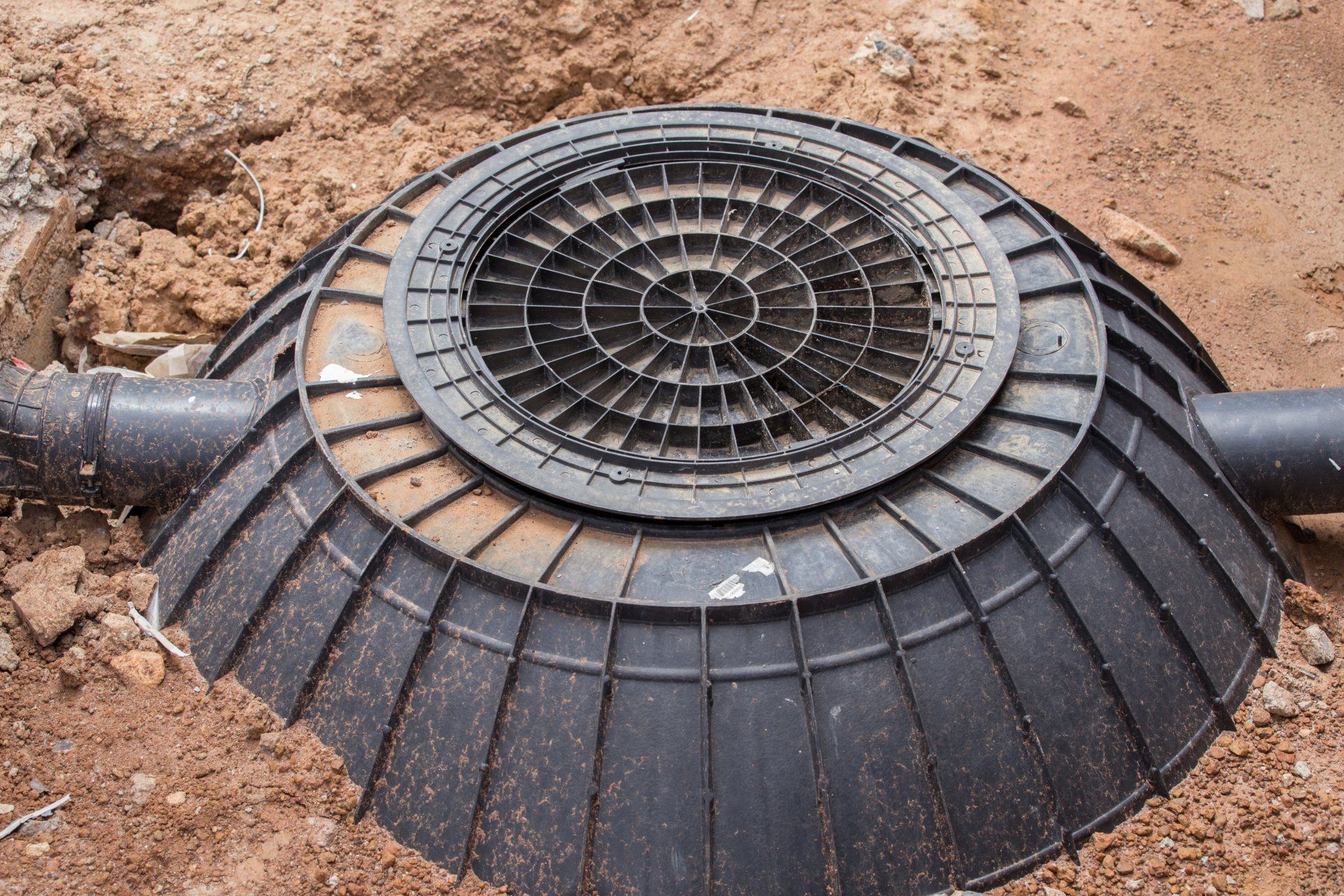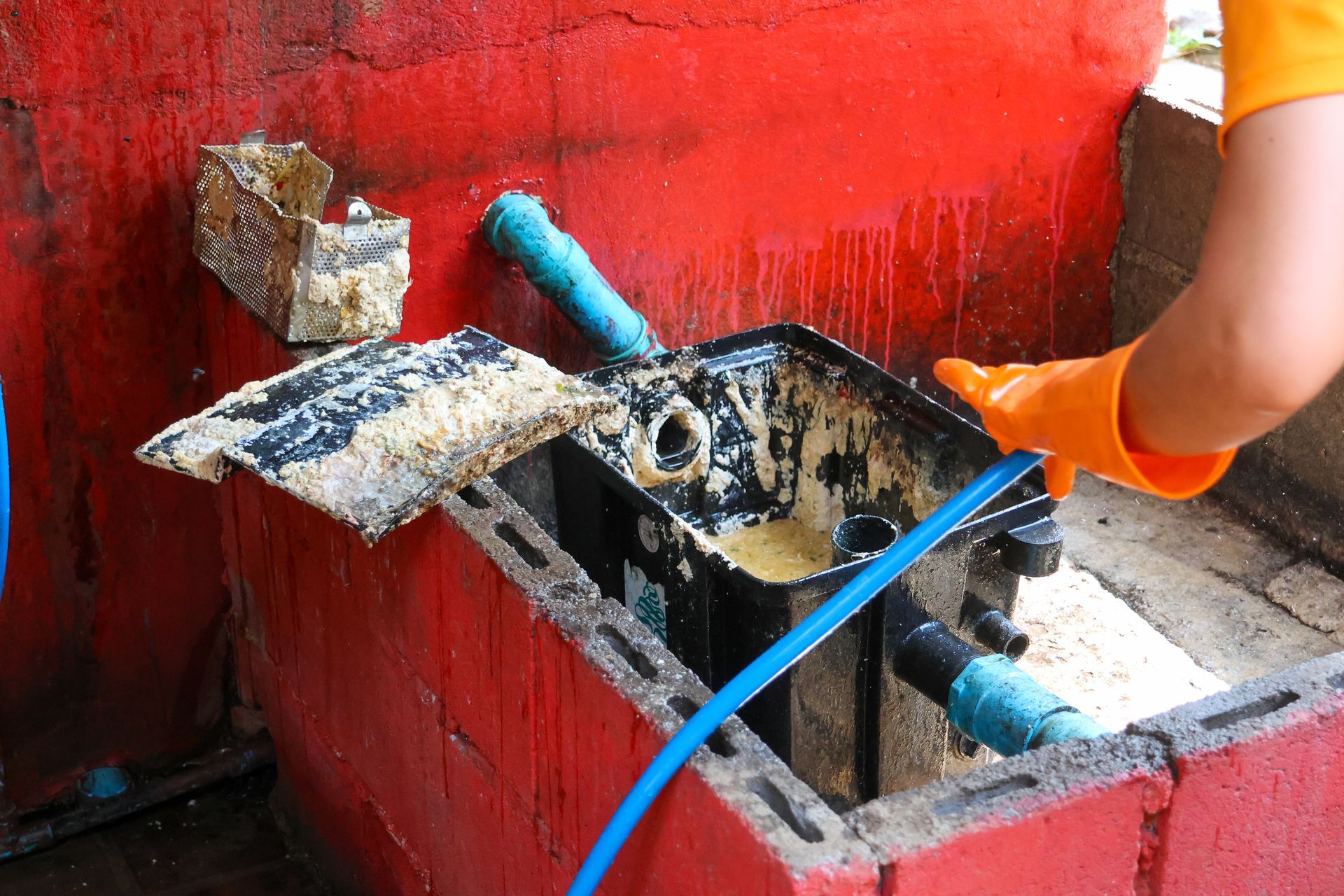Do Grease Traps and Septic Tanks Have Any Relation to One Another?

Grease traps are a crucial water treatment component of commercial facilities that prepare and cook food. Grease traps work to separate fats, oils and grease (FOG) from water and prevent them from entering and damaging sewer systems or septic tanks. If a business or cafeteria happens to be located somewhere without sewer access, they may have a grease trap connected to their septic tank.
Although most homes generally don’t install grease traps, it’s not unheard of for homes that use septic tanks to benefit from a grease trap. The bacteria in septic tanks can’t break down FOG. In some cases, FOG may even prevent the bacteria from performing its job. Although it’s always important to prevent FOG from going down drains, it’s especially important if those drains lead to a septic tank.
Allowing FOG to enter a septic system can lead to the buildup of nonbiodegradable scum. This scum can easily backflow, causing serious plumbing issues, contamination of ground water and foul odors.
A Grease Trap Keeps Your Septic Tank Safe from FOG
If you’re a business or homeowner in Georgia, your water may be treated with a septic system. In fact, 10 percent of wastewater generated in Metropolitan North Georgia’s Water Planning District drains into septic tanks.
When wastewater enters a septic tank, it stays in there long enough for solids to settle down at the bottom of the tank, where it turns into sludge. The liquid wastewater then exits the tank into a drain field where it is dispersed over soil. The soil further treats the wastewater and ultimately discharges it to groundwater. The process happens naturally, with minimum human intervention.
To prevent the overflowing of sludge, a septic tank must be emptied out regularly—approximately once every three to five years.
There are several items that won’t be properly broken down in your septic tank. Some examples include garbage, toxic chemicals and grease.
How Does a Grease Trap Work?
A grease trap, also known as a grease interceptor, traps FOG that goes down drains before it gets to the sewer system or a septic tank. A grease trap holds up hot, greasy water, giving it sufficient time to cool. Once the water is cool enough, the fats, oils and grease separate and remain in the grease trap, while FOG-free wastewater is allowed to continue down pipes into the sewer or a septic tank.
Grease traps must be pumped far more frequently than most septic tanks or they will clog. A clogged grease trap can easily block water flow and create a greasy and smelly mess. If you have a residential grease trap that isn’t subject to local maintenance and cleaning regulations, you may choose to clean it yourself. However, food service businesses and commercial kitchens and cafeterias in Georgia are required by law to have professional grease trap cleaning performed in order to keep FOG levels under city or county-mandated limits.
Does My Georgia Business Need a Grease Trap?
As long as your establishment has a kitchen or cafeteria where food is prepared and FOG is a daily byproduct, you’ll be required to invest in a grease trap. The following are examples of businesses, organizations and institutions that must use grease traps:
- Restaurants
- Schools with cafeterias
- Hospital cafeterias
- Bakeries
- Hotels
- Catering companies
- Food courts in malls
- Sports arenas
- Office buildings equipped with kitchens
- Museums with onsite restaurants
Affordable FOG and Grease Trap Services in Atlanta
Are you an Atlanta foodservice manager in need of reliable grease trap cleaning? Southern Green Industries offers regular and one-off grease trap cleaning services along with waste cooking oil recycling. We provide services tailored to your organization’s unique needs.
Our team believes in environmentally friendly solutions and put them into practice by recycling oil into fuel and composting food residuals. If you’re interested in learning more about our services or would like to get a free quote, call (404) 419-6887 or send us a message.
Recent Blog Posts
Contact us Today for a FREE Quote
We are committed to making grease trap cleaning and fryer oil recycling as clean and easy as possible. If you’d like to learn more about our services or get a quote, give us a call at (404) 419-6887.



